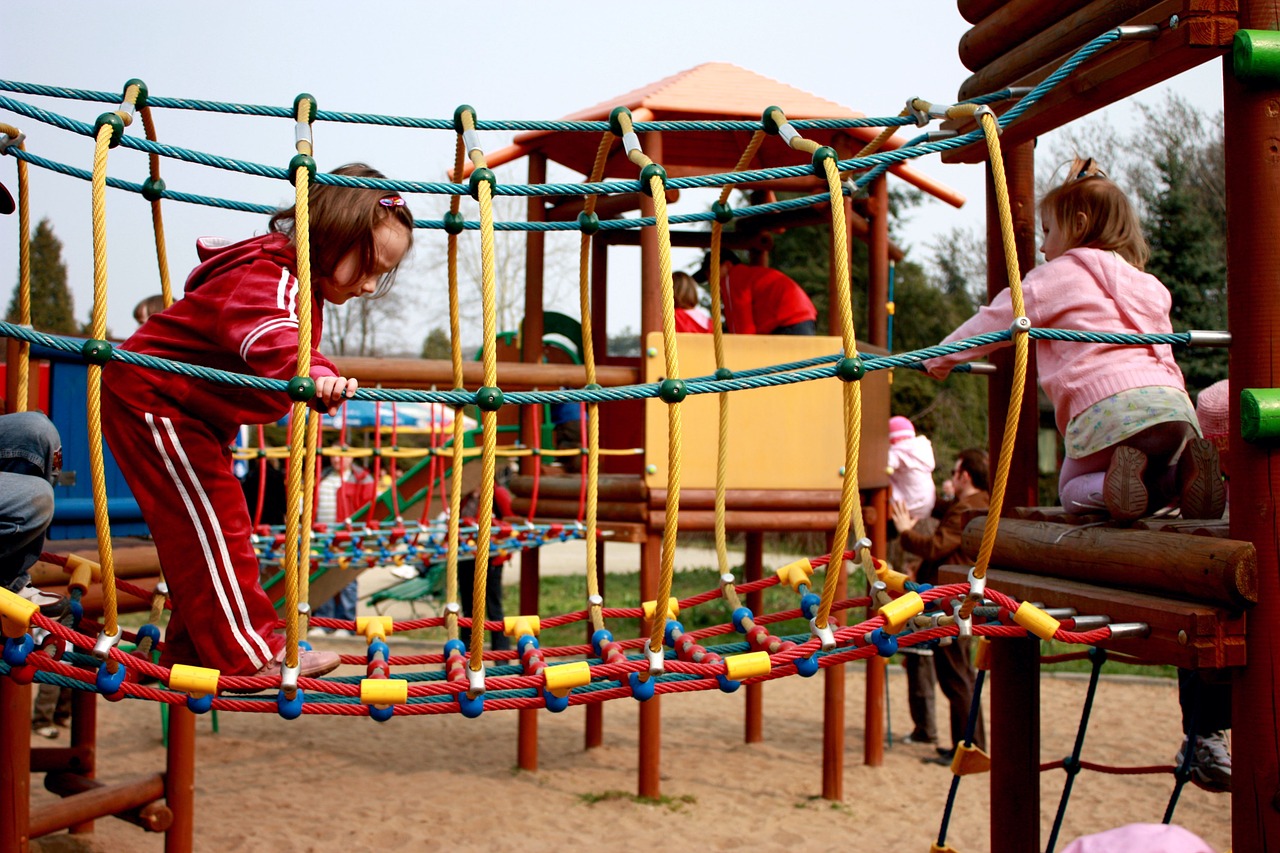Most parents hate taking their kids to the playground. It’s mind-numbingly boring. It lasts forever. And no matter how long you stay, your kids always cry when it’s time to go home.
If you don’t believe me, try Googling a phrase like “playground with my kids.” Most of the results will be along the lines of: 13 Reasons Why Taking Your Kid To The Park Is The Absolute Worst.
Or better yet, the next time you pass a playground, take a moment to observe the parents and the kids. You may laugh out loud at the discrepancy between the ecstatically happy youngsters and the miserable expressions of their elders.
I take my children – ages two and four – to our local playground almost every day. I hate the playground as much as any other parent, but I’ve developed a few tricks to make the experience more bearable. Perhaps they will be helpful to you:
1. Treat yourself
Start by changing the way you think about your time at the playground. It doesn’t have to be a black hole that sucks away hours of your life. There are plenty of things you can do while also engaging in light supervision of your children. Some suggestions: knitting, writing in your journal, making phone calls.
I often listen to podcasts. I also like to read on my Kindle. A couple months ago, I was enjoying Conspiracy by Ryan Holliday so much that we spent two hours at the playground. My kids could not have been happier.
If you find the right activity, you might even start to look forward to going to the playground. Ok, perhaps that’s too much to hope for. But at least you will hate it less.
2. Don’t Micromanage Your Child
Stop hovering over your child. It’s boring, and it’s unnecessary. Most playgrounds in the developed world are incredibly safe.
The playground is a great place for kids to practice a little independence – especially when it comes to learning how to interact with others. Last month, a little girl started walking in the direction of my son in the sandbox. Before she even got close, her mother was barking commands like “Don’t crush his sand castle! Don’t touch his toys!”
I suspect this mother had nothing else to do, and it gave her a sense of purpose. In fact, she’s depriving her daughter of valuable learning opportunities. (See point one for suggested alternative activities).
I only intervene in my kids’ interactions if they or the other child is being truly aggressive. Occasionally, I’ve witnessed a kid acting unfriendly to my son or daughter. That makes me sad. But it’s an unavoidable part of life. And the playground is as good a place as any to learn about that.
3. Apply the 80/20 rule
What single thing do you hate the most about taking your kids to the playground? Eliminate that, and your whole experience could improve considerably.
For me – and I suspect the same is true for many parents – it’s pushing swings. Thus, I decided a long time ago to refuse to do it. I realize that’s an unorthodox position. Swing pushing is widely considered to be a core competency for parents. However, l apply the 80/20 rule to this. Pushing my kids on the swings represents only 20 percent of our time at the playground. But it accounts for 80 percent of my irritation. So I just don’t do it.
I often see happy kids on swings with grumpy parents standing behind them, checking their phones in between each push. It makes me sad.
By now, my no-swing-pushing policy is so well established that my kids don’t even bother to ask me anymore. They’re especially grateful when their father or another adult does push them. And it makes me hate the playground less. Thus, I’m more motivated to take my kids there on a regular basis. In the long run, everybody wins.
—
Despite how much we hate it, parents still take their kids to playground because we know it’s good for them. The playground packs a developmental punch that few other experiences can match. It represents physical activity that’s conducted outdoors. (Experts are warning parents that modern kids are not getting nearly enough of this.) It develops both fine and gross motor skills. Playing with the other kids teaches social skills. And then there’s the simple fact that kids love it.
If more parents took the time to step back, evaluate their playground stance, and found ways that both they and their children can enjoy the experience, would we see many happier, healthier, and responsible children… and fewer stressed parents?
—
[Image Credit: Pixabay]
















Leave a Comment
Your email address will not be published. Required fields are marked with *